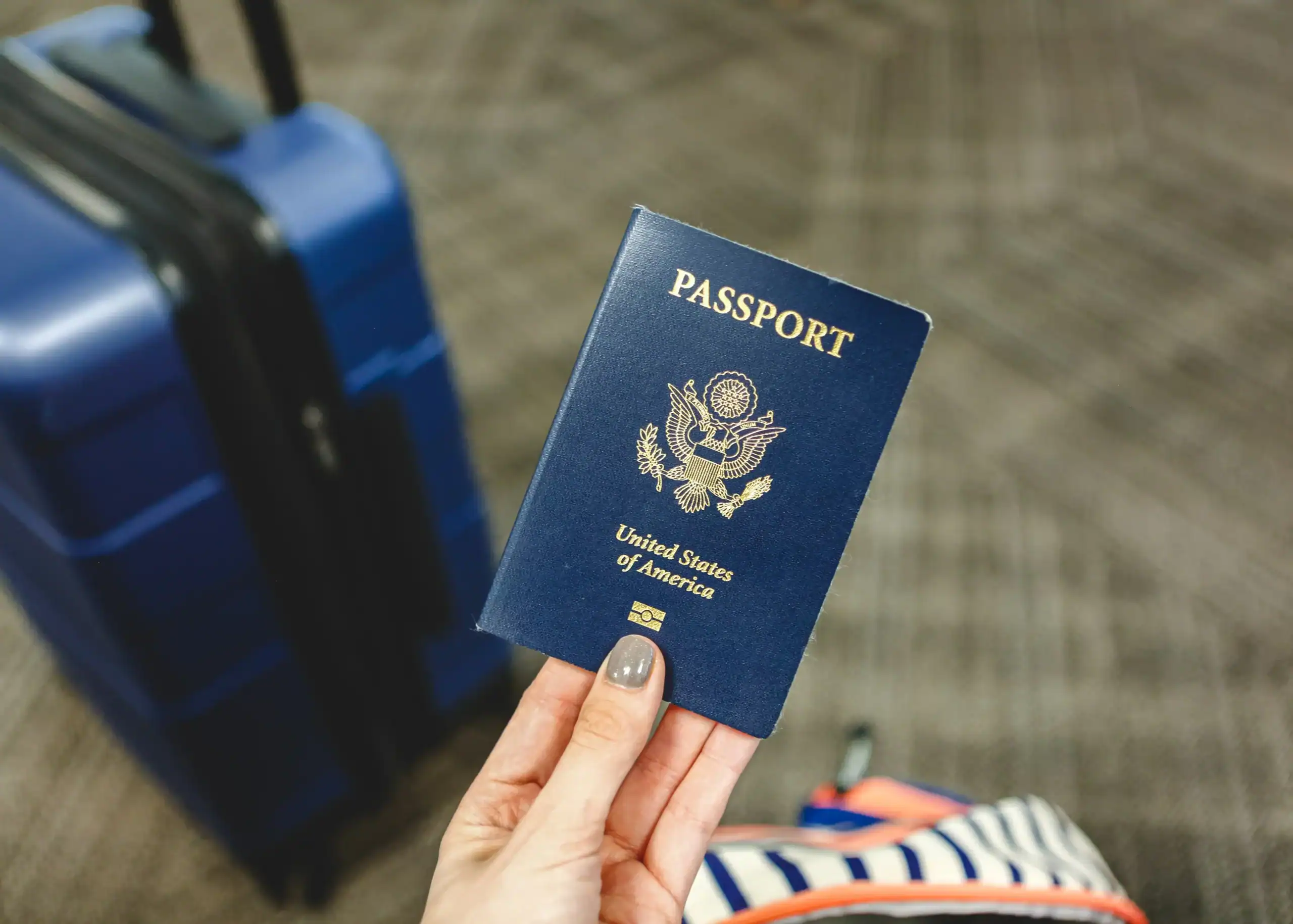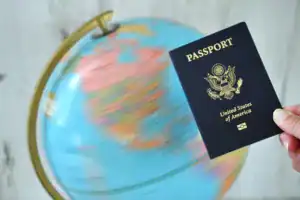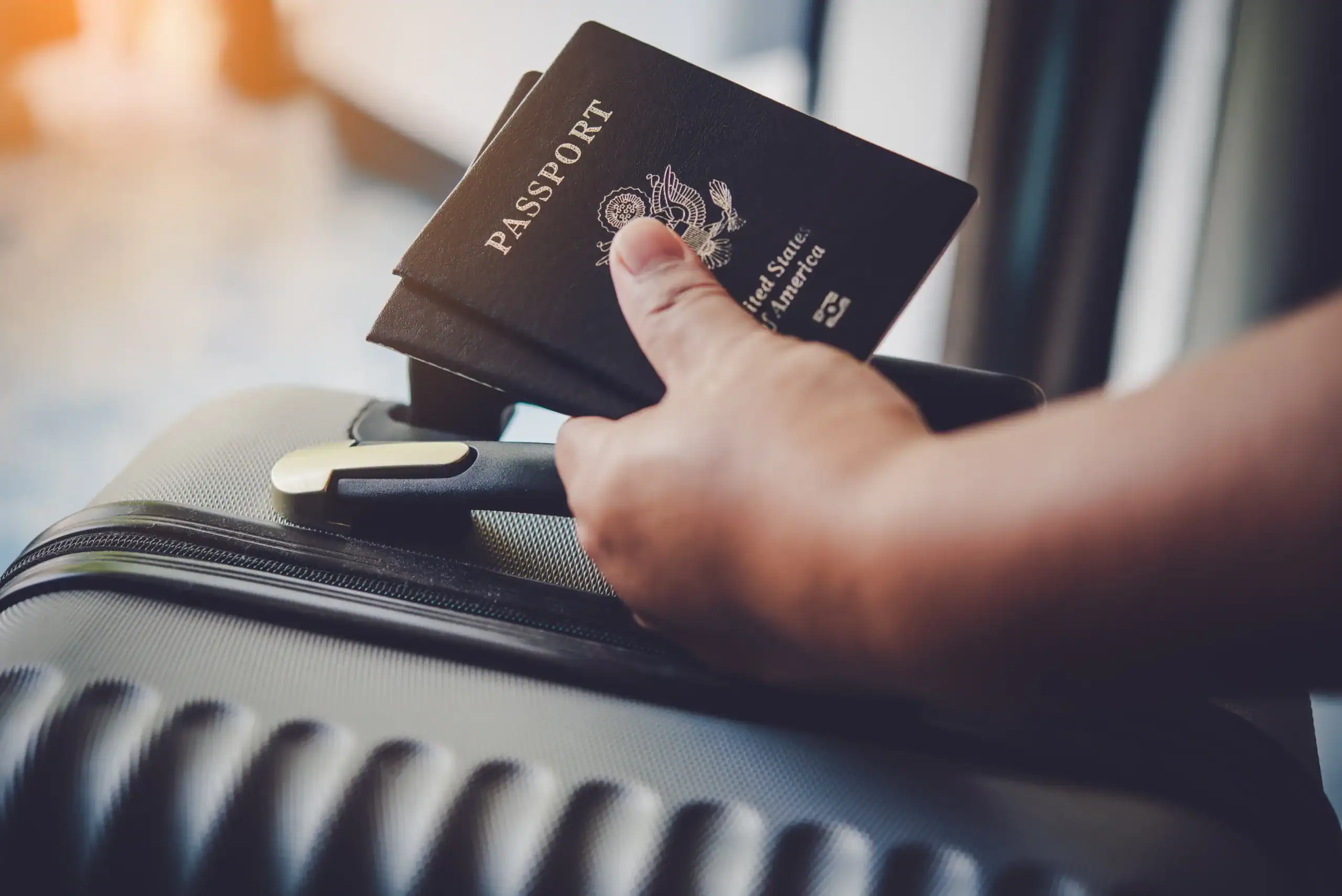Fighting Global Entry Denials Since the Program Was Created
Global Entry can make a tremendous difference for travelers, especially those who frequently travel outside the U.S. But you’ll have to jump through some hoops before you’re issued a Known Traveler Number (KTN), and there’s no guarantee you’ll be approved. Approval times can also be unpredictable. According to U.S. Customs and Border Protection (CBP), the time to a final decision on a Global Entry application may range from two weeks to 12 months or more.
Our Global Entry denial lawyers help travelers nationwide:
-
Successfully appeal denied applications
-
Reapply with the strongest possible case
-
Navigate the process efficiently to minimize delays
To learn more about how we can help with your Global Entry application or appeal, call us today at 800-481-2526. If you’ve received a notice of denial, your time to act is limited, so don’t delay.
Keep reading to learn what you need to know about the Global Entry program, what’s required for approval, what to do if your application is denied, and how a Global Entry denial lawyer can help.
How the Global Entry Program Works
Global Entry is the broadest of the Department of Homeland Security’s Trusted Traveler Programs (TTP). Global Entry membership includes perks such as expedited processing at airports and use of dedicated security lines at U.S. airports with less cumbersome security procedures. For someone who frequently travels outside the country, these processes can be a huge time saver.
Who Is Eligible for Global Entry?
The Global Entry program is open to U.S. citizens, legal permanent residents of the U.S., and citizens of 20 other countries. However, people who meet those basic requirements may still be denied for many reasons. For example, your application may be denied if the government believes that:
- You have provided false or incomplete information in the application process
- You have been convicted of a crime
- You have pending criminal charges and/or a warrant for your arrest
- You have violated customs, immigration, or agricultural laws in the U.S. or elsewhere
- You are under investigation by any local, state, or federal law enforcement agency
- You have been denied the right to purchase a firearm
- You are not admissible to the U.S. under current law or regulations (even if you have a waiver)
Note, though, that the determination is made based on the government’s perception of risk. That means your application could be denied for reasons not on this list, or for a combination of reasons. For example, a history of travel to a country or countries considered “high-risk” could trigger a denial, even if there is no evidence of any type of wrongdoing.
How to Apply for Global Entry
-
Create a TTP account to start your application.
-
Pay the $120 application fee (2025 rate).
-
Complete your application thoroughly
-
Include personal info and travel patterns.
-
Be honest and disclose any past issues. Concealment can hurt your chances.
-
-
Pass a background check to receive conditional approval.
-
Schedule and attend your interview at a local Enrollment Center.
-
Wait for the final decision
-
Approval may come within weeks.
-
If denied, you’ll receive the reason and options to appeal.
-
-
Work with an attorney specializing in global entry matters
-
Get expert guidance to avoid delays, address red flags, and maximize your chances of approval.
-

Diving Deeper into the Global Entry Application Process
To apply for Global Entry, you must first create a TTP account. You’ll also have to pay an application fee. In 2025, that fee is $120. On the application, you’ll be asked to provide both personal information and information about your travel patterns. Remember that it’s your responsibility to provide sufficient information to help the government conclude that you are a low-risk traveler, so you can’t afford to cut corners in this process.
Honesty and full disclosure are essential. For example, a long-ago arrest or a single trip to a high-risk country may not necessarily disqualify you. Even if your application is initially denied, you may be able to provide context that leads to approval on reconsideration. But, if you conceal that information or the government believes you were attempting to conceal it, approval becomes much less likely.
The next step is a background check. If you pass the background check, you will be granted conditional approval, but the process isn’t over. Next, you will be required to schedule an interview with the CBP. The interview will take place at a local Enrollment Center, which is typically located in airports or federal government buildings.
When you work with a Global Entry attorney at The Edmunds Law Firm, we will help you with every step of the process, from completing the application to preparing for your interview. That includes advising you on how to address any potential red flags that may appear in the application process and helping you avoid missteps that could lead to delay or denial.
After you receive conditional approval and sit for your interview, your application for the Global Entry program will go through the vetting process. If there are no issues that require further investigation or consideration, you may receive a response within just a few weeks. Then, you’ll receive either a notice that your application has been approved or a denial notice with information about the reason for the denial and your options for appeal.
This all sounds fairly straightforward, but Global Entry applications are often denied because the applicant didn’t understand the type and extent of information required to secure approval. While you aren’t required to work with an attorney on your Global Entry application, an experienced Global Entry attorney can help ensure that you provide the information and documentation the CBP is looking for with your initial application.
How to Appeal a Global Entry Denial
If your application is denied, you will have the opportunity to appeal the decision. However, this can be a lengthy and complex process, and is best approached with the help of an experienced global entry appeal attorney.
When you receive notice that your Global Entry application has been denied, there are different routes to requesting reconsideration or appealing the denial. If you don’t have experience with the process, it’s easy to make the wrong choice or fail to provide the right type of information and evidence without a global entry appeal attorney helping to guide you along the way. An experienced Global Entry lawyer can make all the difference.
Options for Requesting Reconsideration
The quickest and simplest path to reconsideration is to appeal directly to the local enrollment center where you were interviewed. However, there are some limitations associated with this option. The first is that you have just 30 days to submit this type of appeal. Rushing the process can be counterproductive, since you may not have the opportunity to gather the information you need to submit a persuasive request.
The most common approach is to request reconsideration through the CBP Trusted Traveler Ombudsman. You have up to one year to go this route, which offers a much more comfortable window for gathering information about why your application was denied and assembling a persuasive response. This more in-depth process takes longer, but also provides a better opportunity for most people.
Finally, you may file a petition through the Department of Homeland Security Traveler Redress Inquiry Program (DHS TRIP). This is the most formal option and far less common than requesting reconsideration through the Ombudsman, but it may be a better option in certain limited circumstances. Your Global Entry denial lawyer can explain each option in greater detail and help determine the best path for you.

Contact a Global Entry Denial Lawyer Today
Most attorneys are not experienced with the Global Entry application process, nor with Global Entry appeals. At The Edmunds Law Firm, we have been assisting Global Entry applicants and fighting Global Entry denials since the program was introduced in 2008.
Global Entry membership can be denied at the government’s discretion, so it’s important to do everything possible to show that you are a low-risk traveler. The best way to ensure that you’re providing the right information in the right format–whether at the application or appeal stage–is to work with an experienced Global Entry lawyer.
Attorney Alan Edmunds also has more than four decades of experience helping people secure U.S. national security clearance–a similar but much more demanding process. To learn more about how we can help with your Global Entry application or appeal, call us today at 800-481-2526. If you’ve received a notice of denial, your time is limited, so don’t delay.
Below you will find general answers to some of the most common questions we hear. However, there is no substitute for personalized advice from a knowledgeable advocate.
